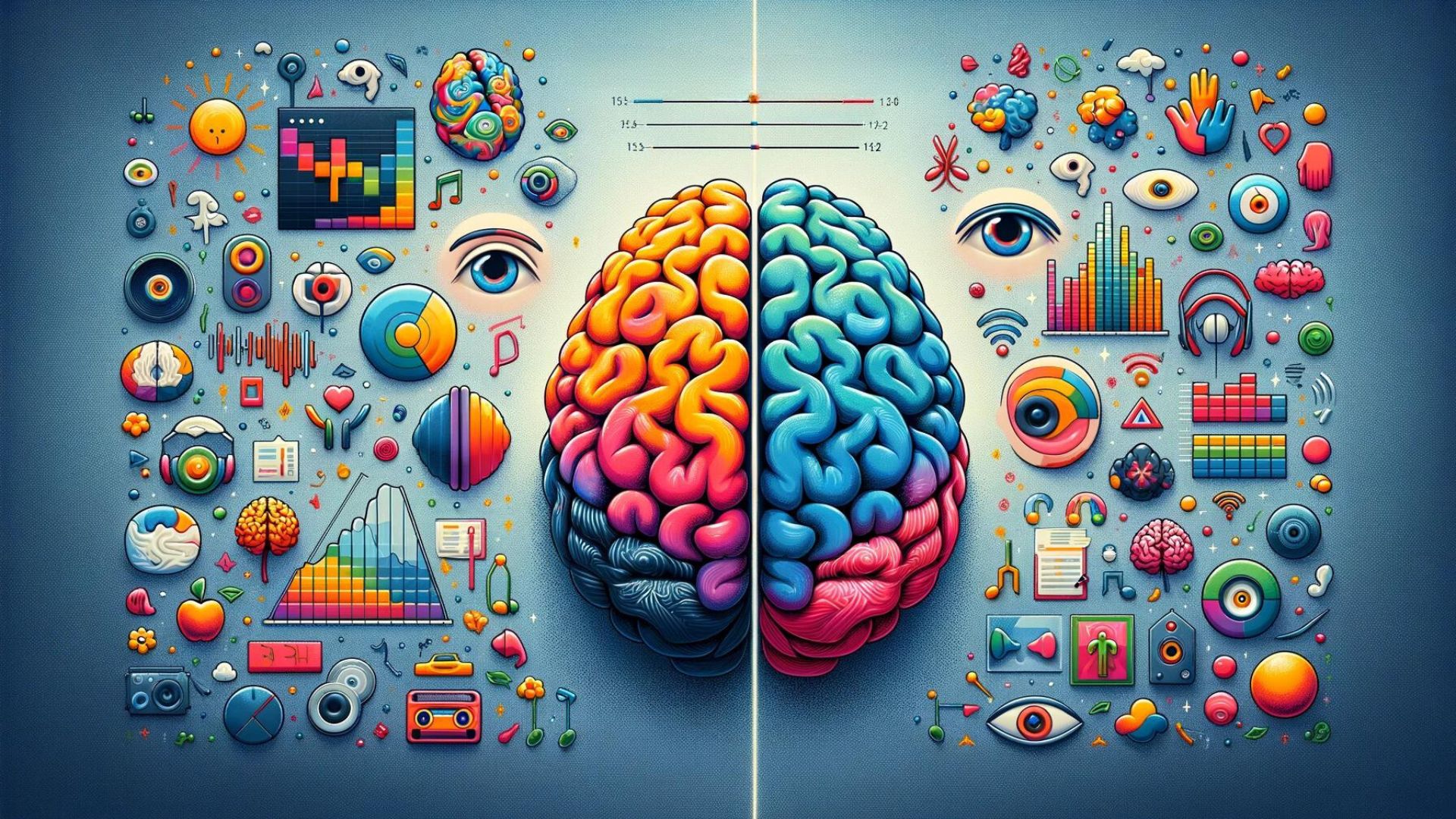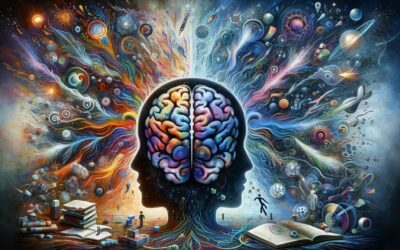Have you ever struggled through a long lecture, wishing the professor would just put up some diagrams? Or maybe you find reading textbooks a chore, preferring podcasts or audiobooks? You might be a visual or auditory learner!
The Science Behind Learning Styles
Our brains are wired in wonderfully unique ways. While the idea of being purely one type of learner is a bit simplified, there is truth to this idea:
- Visual Learners: Your brain processes and remembers information best through images. Think charts, graphs, illustrations, or even just mind-mapping your notes.
- Auditory Learners: You thrive on listening to lectures, participating in discussions, and benefit from reading out loud to yourself.
Is One Better Than the Other?
Absolutely not! Both are equally valid. The key is understanding your tendency so you can adjust how you approach learning. Let’s look at some examples:
- Studying history: A visual learner might benefit from timelines and maps, while an auditory learner could do well by listening to historical documentaries or podcasts.
- Learning a new language: Visual learners may find flashcards with pictures helpful, while auditory learners pick up vocabulary faster by having conversations or listening to songs in that language.
Real-Life Impact
This isn’t just about better grades! Understanding your learning style can help you:
- Make studying more efficient: Why struggle through methods that don’t work for you? Tailor your learning to your brain!
- Reduce frustration: When you understand why some learning tasks feel harder, you can approach them strategically.
- Feel empowered in any learning environment: Whether it’s school, a new job, or a personal hobby, you’ll have the tools to excel.
Beyond Visual and Auditory
Remember, there are other ways we learn too! Some people learn best by doing (kinesthetic). And, most of us benefit from a mix of approaches for different subjects.
Action Point
- Think back to times when learning felt easy and enjoyable. What was the format? Were there visuals, discussions, or hands-on activities? This gives clues to your preferences.
- Experiment! Next time you study, try a new strategy. If you usually just read, try drawing a concept instead, or record yourself explaining ideas and listen back.
Discovering how your brain learns best is like getting a superpower! Use this knowledge to become a more confident and successful learner, at any age or stage of life.
Why Should You Care?
- Customize your learning: Understanding your learning style empowers you to tailor study methods for maximum success and minimizes wasted time on ineffective strategies.
- Less frustration, more fun: Learning becomes more enjoyable when it aligns with how your brain processes information.
- Lifelong learning advantage: Whether in formal education or acquiring new skills throughout life, knowing how you learn best serves you for years to come.
Key Takeaways
- Our brains have natural preferences for processing information, such as visual or auditory learning.
- There is no single “best” learning style. All methods are valid when matched with individual needs.
- Understanding your tendencies unlocks more efficient learning and reduces frustration.
- Most people benefit from a combination of learning styles, and preferences can vary for different subject matter.
Keywords
- Visual learners: Individuals who learn most effectively by seeing information – charts, diagrams, mind maps, etc.
- Auditory learners: Individuals who thrive on listening – lectures, discussions, reading aloud.
- Learning styles: Preferred ways that individuals take in, process, and retain information.
- Kinesthetic learners: People who excel with hands-on learning: movement, building, experimenting.
- Study strategies: Methods used to learn new materials, such as note-taking, concept mapping, practice questions.
- Brain plasticity: The brain’s lifelong ability to change and adapt based on experiences.
- Metacognition: Thinking about your own thinking – analyzing your strengths and learning preferences.
- Learning environment: The physical setting, but also the teaching style, that influences a person’s learning.
- Neuroscience: The scientific study of the brain and nervous system.
- Educational psychology: The field studying how people learn, including motivations, learning differences, and optimal teaching techniques.
Frequently Asked Questions
- Are learning style labels limiting? Sometimes. It’s best to see them as starting points, recognizing we utilize multiple learning modes depending on the task.
- Can I change my learning style? You can’t fundamentally rewire your brain’s preferences, but you can absolutely strengthen skills in less-preferred areas.
- Does this mean teachers should only teach to each style? Ideally, educators offer a variety of learning methods to benefit diverse learners in their classrooms.
Myth Buster
- Myth: We only use 10% of our brains.
- Reality: This is false! While different brain parts are more active for certain tasks, we utilize our brain’s full potential over time.
Let’s Talk!
- Do you identify as a visual, auditory, or other type of learner? Share an example!
- Have you ever successfully adapted a study method to better suit your learning style?
- How can teachers support learners with various preferences?
Let us know your thoughts in the comments!











0 Comments